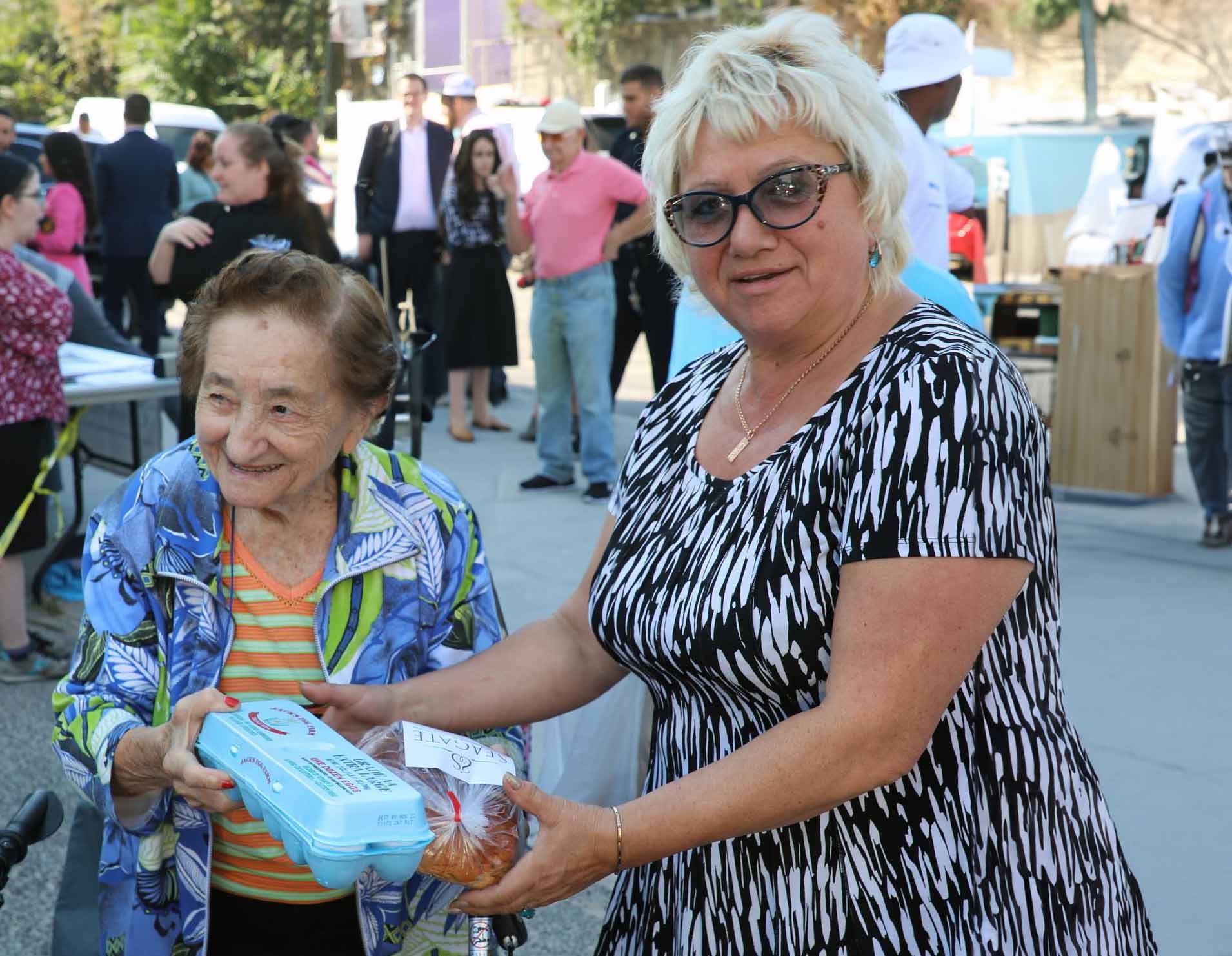Guide to Services Funded by Claims Conference Grants

Home Care
Home care comprises many aspects of care enabling Holocaust survivors to live at home for as long as possible. Home care workers assist with a range of activities related to daily living including but not limited to: bathing, dressing, eating, administering medication, light housekeeping and cooking, friendly visiting, respite care and chores such as shopping.
Food Program
Hot meals in a communal setting, home delivery of meals or delivery of staple items to Holocaust survivors who are able to cook at home.
Medical, Dental & Psychological Services and Care
Medical examinations and consultations; medical items such as walkers, wheelchairs, canes or other necessary aids; assistance with the cost of medication; dental exams and psychological care.
Emergency Assistance
Cash grants given to Holocaust survivors in need, to help meet necessary expenses, including but not limited to rent to prevent eviction, medical care, medical products such as wheelchairs and hearing aids, eyeglasses, housekeeping, utility payments, clothing needed for winter, food and funeral expenses.
Day Centers and Social Programs
Gatherings where Holocaust survivors can talk with each other, find companionship and care; assistance with legal matters e.g., landlord/tenant disputes; socialization programs for Holocaust survivors at centers in the former Soviet Union; and subsidies for membership in a senior day center program, which provides socialization, meals, activities and the opportunity to connect on a regular basis with a social service agency.
Other Services
“Other Services” refers to miscellaneous or one-time allocations for services providing assistance and care to Holocaust survivors.
Supportive Communities
In Israel, supportive communities are networks for Holocaust survivors that provide emergency alerts, home repairs and other services.
Client Transportation
Providing transportation for Holocaust survivors to go to medical appointments, communal meals, social events and day centers; and the purchase of vehicles to transport Holocaust survivors or deliver services to them.
Winter Relief
Assistance with items such as firewood, coats, and blankets and with home modifications designed to better protect against cold.
Case Management
Case management refers to agency social workers (case workers) helping Holocaust survivors in an ongoing capacity such as by assisting them obtain services they need and to which they are entitled. Case workers connect survivors with public and private programs, assist with applying for government benefits; arrange for services including meal delivery, transportation, medical care and home repairs; file claims for Holocaust-related compensation programs; and help with payment of certain expenses when needed. Case workers who work with Holocaust survivors are specially trained to handle the sensitivities involved.
Minor Home Modifications
Minor adaptive modifications to the homes of Holocaust survivors to improve safety and handicap accessibility such as shower rails and non-slip surfaces.

